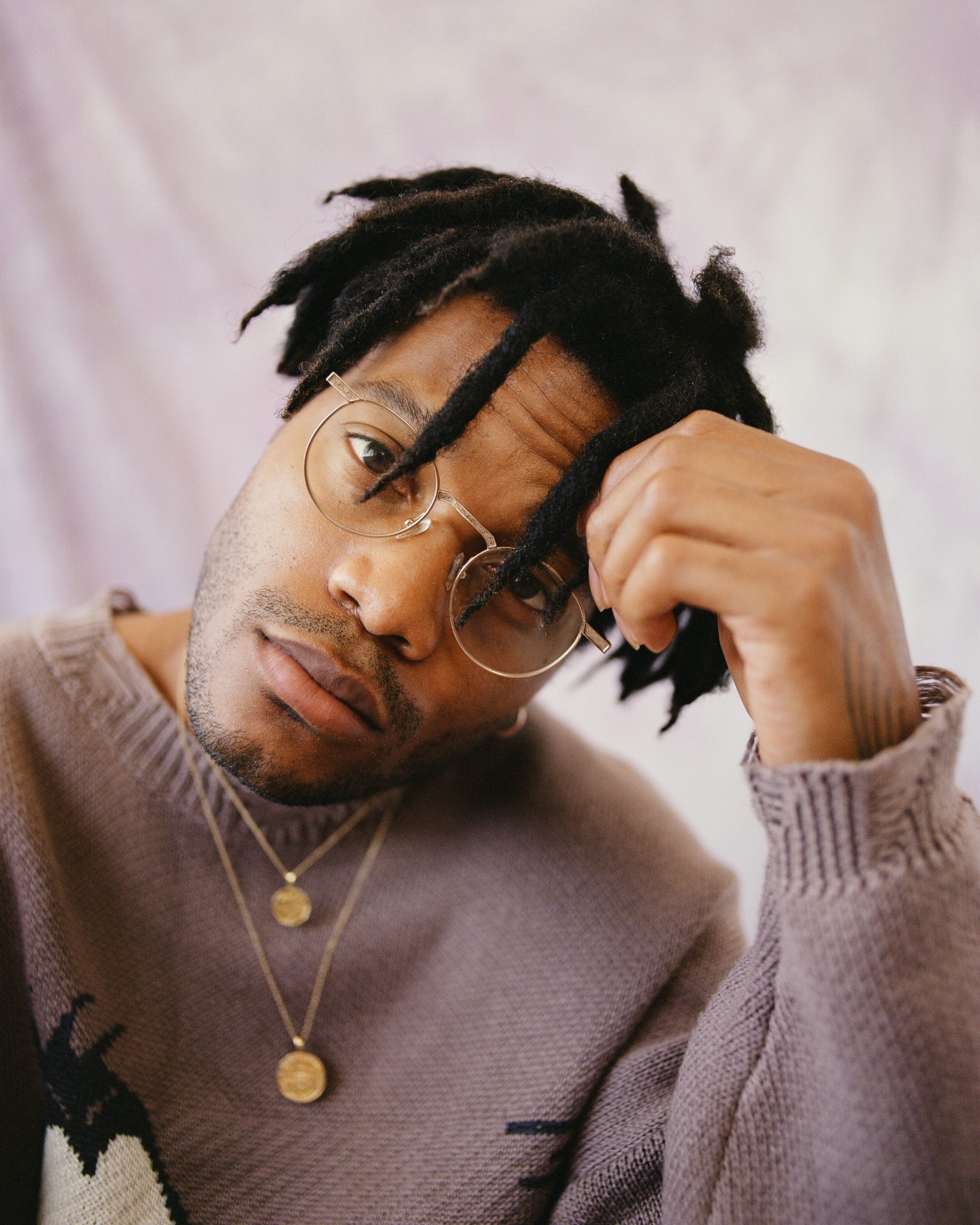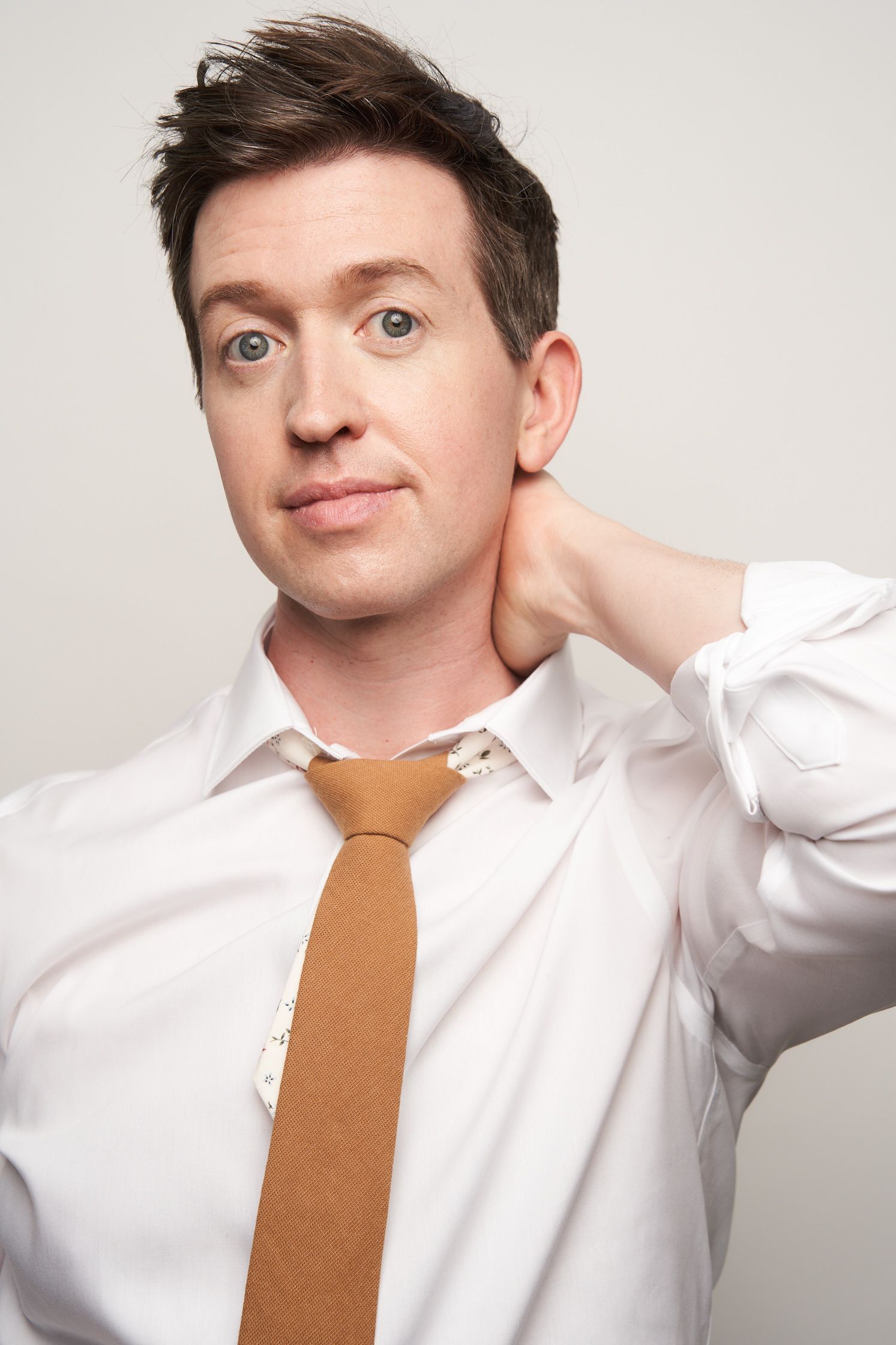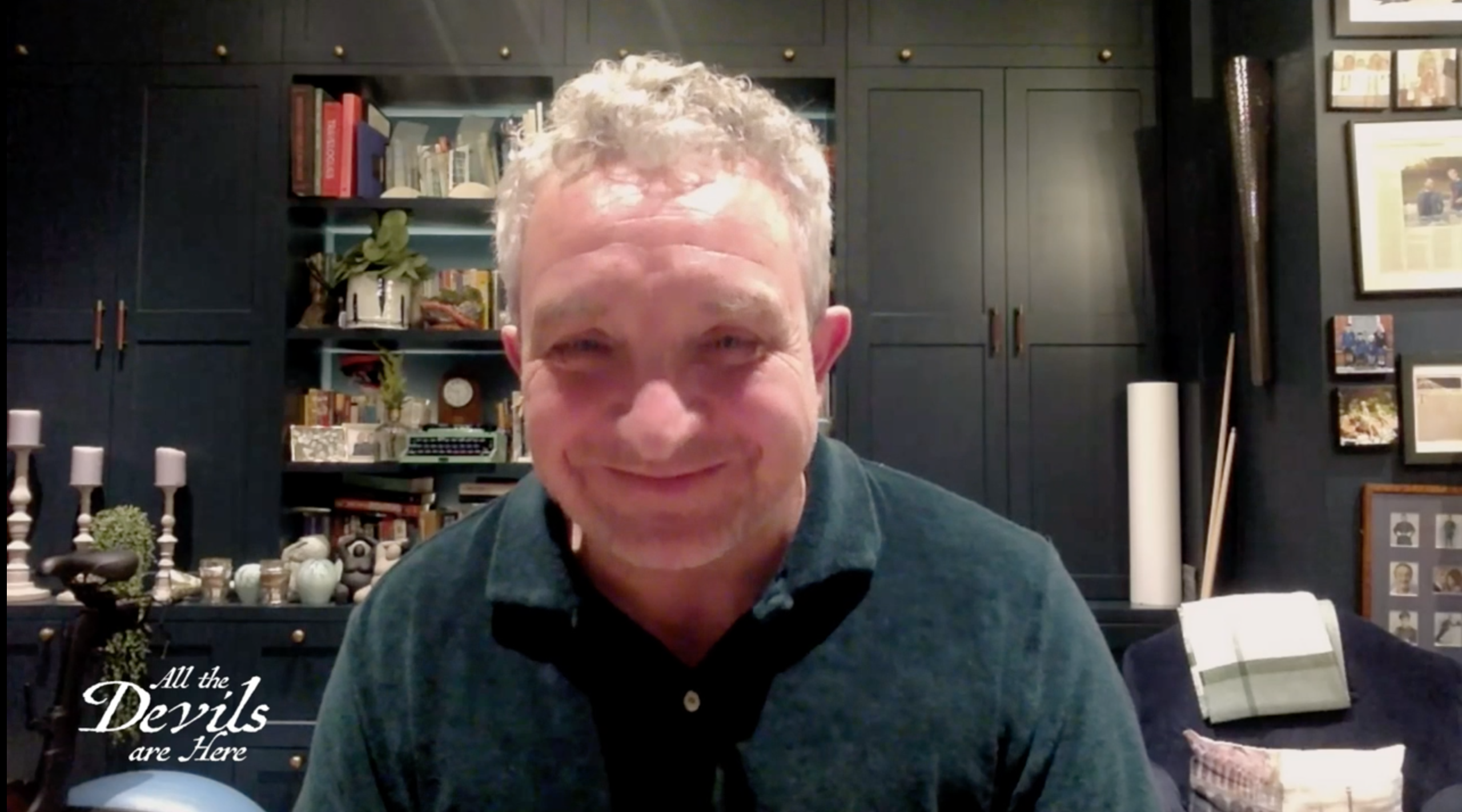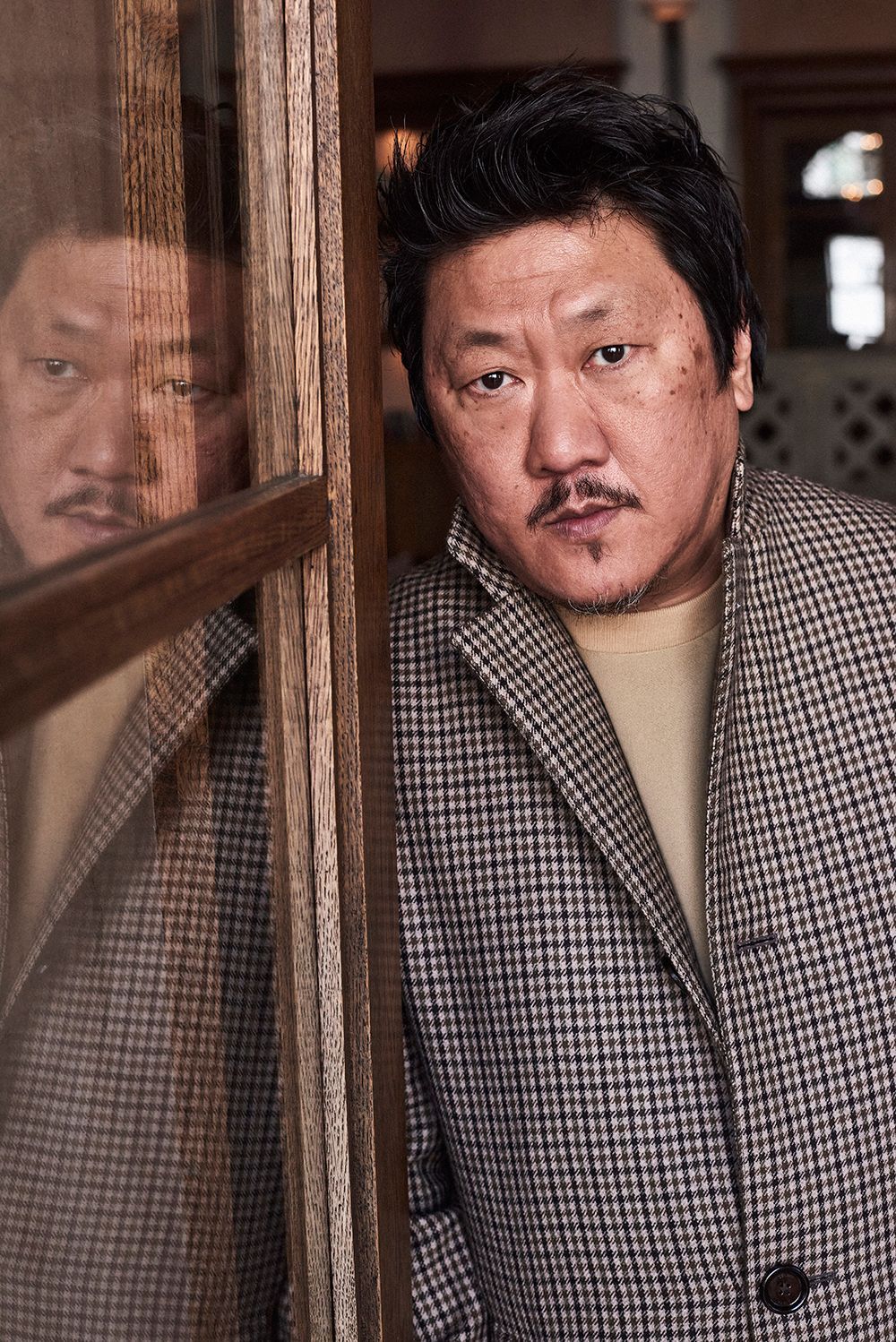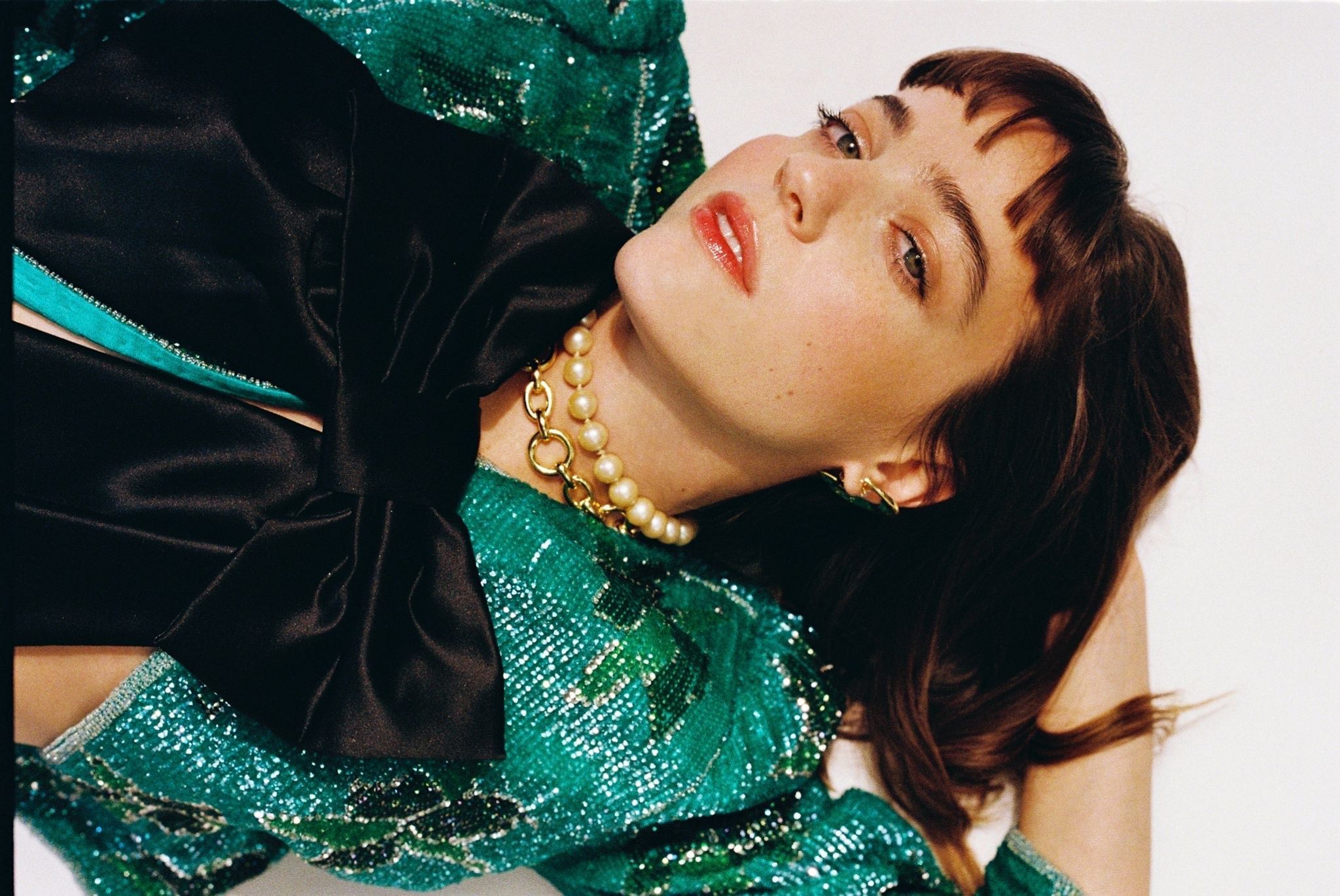In A Murder At The End Of The World, actor Jermaine Fowler is a force to be reckoned with.
Jermaine Fowler is a multifaceted talent whose contributions to the entertainment industry extend far beyond the screen. Known for his dynamic performances, whether in the realm of comedy or the gripping mystery genre, Fowler has captivated audiences with his unique approach and undeniable charisma. Now, with his latest project Murder At The End Of The World, he explores the intricacies of his craft and how it shapes his character.
Fowler’s aspirations to use his success as a catalyst for projects that break the mould, coupled with his admiration for cinematic mavericks like Nicolas Cage and Robert Pattinson, offer a glimpse into the kind of legacy Jermaine envisions. A legacy not solely defined by personal accolades but by the impact he leaves on the industry – an impact measured in audacity, irreverence, and the courage to tell stories that resonate across diverse audiences. In an era where the storytelling landscape is rapidly evolving, Jermaine Fowler stands as a beacon of authenticity and innovation. At his core, he holds profound insights about the industry’s evolution and the role he aspires to play in shaping its future.
1883 Magazine sits down with Jermaine Fowler to discuss his role in A Murder At The End Of The World, his hopes for the film industry, and beyond.
So, beginning your career in stand-up and transitioning to television and films, how did your experience in stand-up shape your approach to acting? Additionally, are there specific elements from your Stand-up days that you deliberately incorporate into your on-screen roles?
I find starting in stand-up gave me a unique advantage. When I worked on a multi-cam show like the one I did on CBS called Superior Doughnuts, I sensed that my stand-up background provided me with a solid understanding of what would resonate comedically with an audience. I had a good feel for which jokes would land and which might fall flat due to being too verbose or not hitting the right comedic notes. In terms of acting, I believe stand-up has consistently played a role in refining my timing and boosting my comedic confidence. When portraying a character with a humorous slant, I draw on my stand-up experience, and in turn, my acting has cultivated a greater sense of assurance in my stand-up performances. Previously, I used to worry about losing myself in characters that weren’t well-received during stand-up shows, but now, I’ve developed a more carefree attitude. I don’t mind if the audience responds or not.
I appreciate immersing myself in the bit and letting go during stand-up performances, attributing this comfort to my experience in acting and character development. It seems that both realms, acting and stand-up, have mutually enriched each other in my journey.
Moving forward, your career has seen a diverse array of roles, from Mark Clark in Judas and the Black Messiah to now portraying Martin. How do you approach such varied characters, and what challenges or rewards do you encounter when navigating between genres?
I believe it’s crucial to stay true to the essence of each character. I’m drawn to the narrative and find ways to imbue depth into characters, especially if the initial portrayal on paper seems limited. It involves delving into aspects not explicitly revealed to the audience. For instance, during Judas and the Black Messiah, my immersion into Richard Pryor’s comedy specials became an obsession. Additionally, researching the Peoria accent from that era, given Mark Clark’s background, seemed fitting. I incorporated these elements into the character, hoping it would resonate on set. It’s about making connections, and brainstorming who this person is, from their preferences to daily habits—all vital for an authentic portrayal.
Now, with Martin, it was an enjoyable experience because, in many ways, he’s an extension of myself. A film enthusiast, Martin uses cinema to express emotions, living and breathing the world of movies. His identity is shaped by films, referencing them to convey feelings, much like how I turned to movies during a challenging period in my own life at 19. Watching Peter Jackson’s King Kong became my safe space, a sanctuary where I could unravel.
So, it seems like you draw from personal experiences and surroundings to infuse authenticity and depth into your characters.
Absolutely, and it mirrors my approach in stand-up. The process is quite similar. When crafting stand-up material, I dissect my day, analyze the people around me, and extract observations that contribute to the narrative. It’s all part of the same creative journey, whether it’s on stage or in front of the camera.
Observations.
Yes, indeed, it’s all about observations. The same applies to character development. Nuances and intricacies are often gleaned from my interactions with people, experiences, or even influences from news broadcasts, comic books, and music. Each character is like a Frankenstein creation, with elements pieced together from various sources—voices, mannerisms, expressions—all drawn from my surroundings. Speaking of Martin, besides being a film fanatic, there were three key aspects of the character that intrigued me. Firstly, there’s an inherent ego and self-righteousness that comes with being a successful filmmaker and celebrity in the industry. However, as Martin gets entangled in the murder mystery, he undergoes a humbling journey, grounded by the harsh reality of the situation. The regression and tapping into long-forgotten emotions become a fascinating exploration.
Secondly, Martin finds himself in an apocalypse bunker, surrounded by creative elites, tasked with entertaining them like a court jester. It’s intriguing to see someone accustomed to the glamorous world of celebrity stripped down to a simple role of providing escapism and happiness through movies. Lastly, Martin’s journey becomes a sobering and humbling experience, realizing that the audience, in this case, needs him for escapism and to momentarily escape the harsh realities of the world. It’s a reminder of the role artists play in providing a break from reality.
That’s a profound perspective. Moving on, your involvement in A Murder at the End of the World extends beyond acting, involving collaboration in the creative process. Could you share some insights into your experience with the creators and how your input contributed to the tone of the series?
Absolutely. Zal and Brit were incredibly collaborative. We had conversations about my upbringing and my deep love for film, similar to our current discussion. Those discussions heavily influenced the character, and you can see that in the show. For instance, in the first episode, when Martin talks about a film he wanted to develop about missing black women in Washington, DC, that was an actual conversation I had with Zal. He found it intriguing and incorporated elements into the script. The collaborative effort extended to the costume and wardrobe department, who did an outstanding job capturing Martin’s unique style.
Stunning. Truly impressive.
Everyone looks incredibly different and uniquely glamorous. It’s a visually stunning show with gorgeous-looking people. Collaborating with the creators, hair, makeup, and wardrobe departments, I suggested that Martin should have black-painted nails and drew on his Converse sneakers, a quirky detail from my high school days. The overall aesthetic was a collaborative effort, and they were open to all ideas. It was genuinely enjoyable building that together.
It sounds like a fantastic team effort that contributed to the show’s success.
Indeed, it truly was.
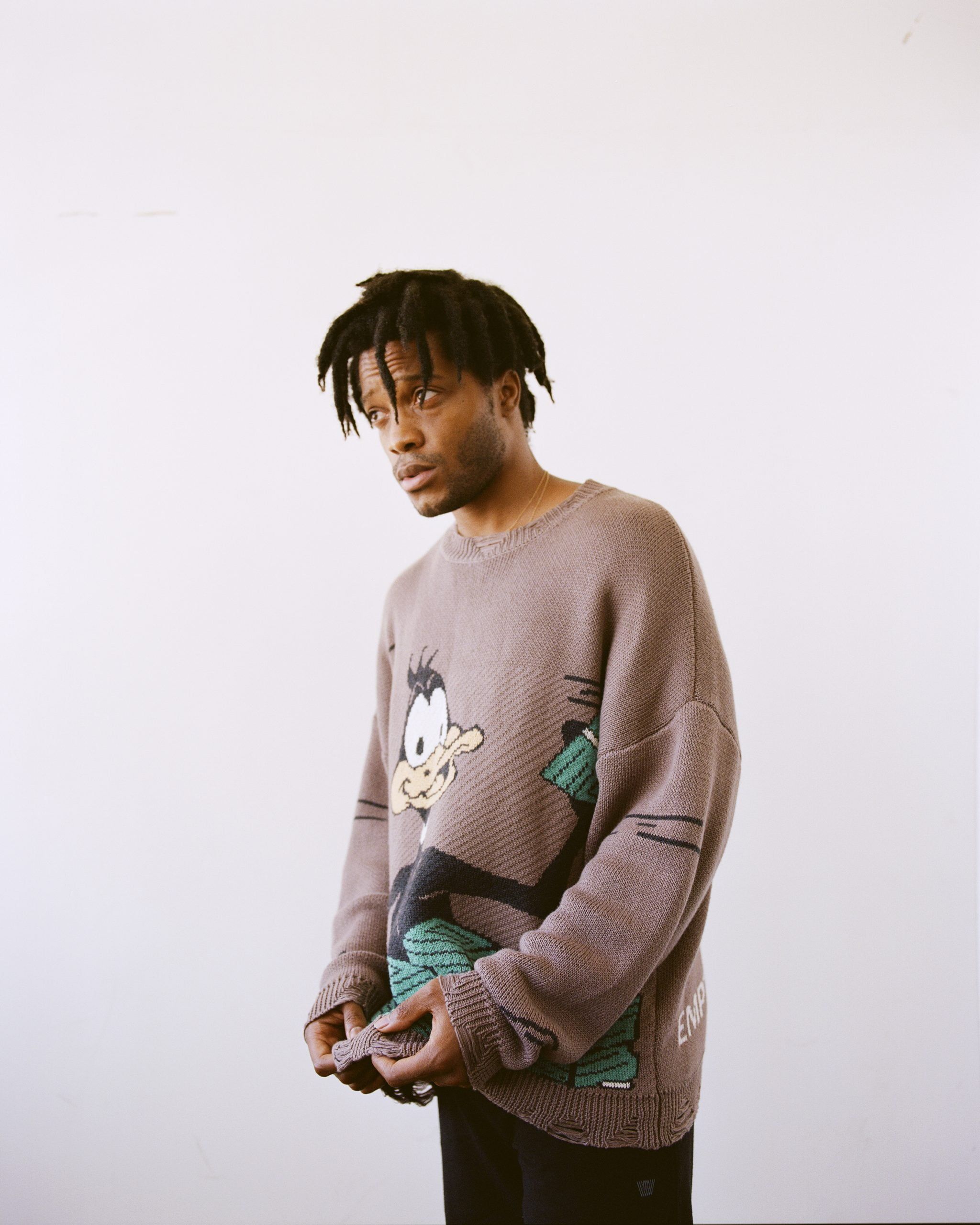
Okay, moving forward, the series has been described as Agatha Christie-inspired. How does Christie’s work influence the storyline, and are there deliberate nods or references to classic murder mystery tropes that the fans might appreciate?
In the best mystery novels and films, they often reveal the killer early on, giving you a plethora of suspects to choose from. It seems too obvious, making you think it can’t be that person, but then the layers start unfolding. The show follows this pattern, introducing new characters with intriguing dynamics. What adds to the suspense is the feeling of claustrophobia. The characters are confined to a desolate setting, creating a sense of urgency—can they find the killer now? It’s a gripping approach that amplifies the suspense, and I think fans will appreciate the nod to classic mystery tropes.
That becomes another character.
Shooting in Iceland created a strong camaraderie among the cast. Spending time with Javed, and Ryan, we built genuine chemistry, which is reflected in our interactions even now. The chemistry is real, and we still talk in our group chat, sharing laughs. It’s a wonderful bond. Chemistry is crucial because you need to root for these characters, making their survival and solving the mystery more engaging. Losing a character feels like losing a friend, which is a hallmark of great mystery novels and films. The show feels original and fresh, incorporating elements from our current society, both the scary and beautiful aspects. The twists and turns are a testament to the strong material, performances, and chemistry.
It seems like the series captures the essence of impactful mystery narratives, blending societal reflections with personal connections. Moving on, given your comedy background, how does humour come into play in A Murder at the End of the World? Does the series strike a balance between the seriousness of a murder mystery and moments of levity? And how does your character Martin contribute to that dynamic?
During the scene on the plane where all the characters meet, I felt it would enhance certain moments to have a couple of jokes. So, I improvised a few lines, expecting the director to rein it in, given the murder mystery theme. Surprisingly, they worked, and the moments were earned. I added a few funny moments, being cautious not to go overboard and maintaining purposefulness.
Striking that balance is crucial.
They let me have some fun, and it’s part of why they wanted me for the role. Martin brings a balance with a mix of fear and humour. I use humour as a defence mechanism, and it comes naturally. Even as a kid, during my parents’ fights, I’d put on a play or a shadow puppet show for my siblings to lighten the mood. It’s always been my way of deflecting and making situations more manageable. So, it made sense to infuse some humour when stuck in a hotel with someone out to kill you—it adds a realistic touch to the character.
Now that the series has premiered, what reflections do you have on the finished product, and are there aspects of the storyline or your character that you’re particularly proud of? Additionally, what do you hope the audience takes away from watching the show?
Well, the series isn’t fully concluded yet; we have a few more episodes left so up to this point, the show has been received overwhelmingly positively. It’s been a very welcomed experience, and I feel a tremendous sense of pride. I’m delighted to be part of a murder mystery, something I’ve always wanted to do, and being involved in a miniseries is equally fulfilling. I’ve always enjoyed shows like Mare of Easttown, The Outsider, and Midnight Mass, among my favourites. During the pandemic, I took in all these shows, and I’m glad our series could offer a similar experience to those who enjoy the genre.
Being part of a great show that I enjoy watching means a lot to me. I’m ecstatic—I truly am. I couldn’t be happier with everything. It was a labour of love, and I had the opportunity to meet so many fantastic people and incredible artists. We still stay in contact, a testament to how much we cherish the experience and each other’s company. It’s one of those things where I wish it didn’t end, but it still feels like we never left the set since we’re all in contact. It’s just phenomenal, truly phenomenal. I’m very proud.
It sounds like an incredibly fulfilling and memorable experience for everyone involved.
Absolutely. We still share memories from the set, and inside jokes, and it’s all fresh in our minds. I’ll never forget Iceland—seeing the Northern Lights for the first time. The show took me to places I never thought I’d visit, and it’s just so enriching. Seriously, I can’t stop thinking about how happy I am with the finished product. It’s just wonderful.
It sounds like it’s not just a show but a journey filled with incredible moments and experiences.
It truly is. If you get the chance, you should visit Iceland. It’s a unique place, like being on the moon with its desolation, yet everyone is so nice and welcoming. It’s a fantastic place to be.
I feel like packing my bags and leaving right now. Well, moving on, beyond diversity on screen, how do you believe the industry can improve behind the scenes in terms of inclusivity and representation, especially for writers, directors, and producers? What steps would you like to see taken to create a more inclusive creative landscape?
It feels like we’re going to be having this conversation for a while. For me, true change won’t happen until there’s representation behind the camera. Casting diverse actors can sometimes feel like lip service or a pat on the back without addressing the real issues. Until the industry has real equity and ownership, we’ll keep encountering the same problems. I’d love to see more producers and financiers of colour shaping these projects. Even though I’ve worked with people of colour in front of the camera, discussions about representation behind the scenes, especially in hair, makeup, and wardrobe, still get exhausting. It’s a slow process, better than when I started, but it’s an ongoing conversation. Hopefully, there will be a day when we won’t need to ask these questions anymore. That’s the goal, to find more equity in the industry. It requires us to come together, not just black individuals, but people from various backgrounds.
I’m curious about other cultures and would love to see more collaborations between different communities. It shouldn’t be a novelty or a pet project; it should be something we continue to build upon and grow. There’s so much talent worldwide, and I’d love to see us all come together to create some incredible movies. It’s time. I want to feel like I can play and work with people beyond my little box. It’s not just my problem; it’s everyone’s issue. So, why stop working with one group when there’s a whole world of talent out there? I’ve always been curious about other people and where they come from. I’d love to collaborate with everybody.
I’ve experienced this on Murder at the End of the World, where we had an international cast with people like Zal, Brit, and Javed. It was a very international and cool experience. Meeting people from Iceland, Ukraine, and beyond made it even more enriching. We need to realize that we all have different problems in different ways, and it’s essential to collaborate and learn from each other. I’m glad you asked this question because it’s not just my problem; it’s everyone’s issue, and we’re all in it together. We need to take it one day at a time and continue to work towards a more inclusive industry. Shows like this can pave the way for change by highlighting what the world could look like when we’re open to diverse ideas. That’s one of the many reasons I’m proud to be a part of this show.
Alright, what advice do you have for aspiring actors, especially those from underrepresented communities, who are looking to make a mark in the industry?
I would say, stay true to yourself and your voice. Don’t try to fit into a mould that doesn’t represent who you are. Be persistent and resilient because this industry can be tough. Surround yourself with a community of support, whether it’s friends, family, or fellow artists who understand your journey. Keep honing your craft, take risks, and be open to learning. Your uniqueness is your strength, so embrace it. Don’t be afraid to tell the stories you want to tell, and don’t let anyone else define your worth. And, most importantly, know that you belong in this industry just as much as anyone else.
As we wrap up, I have one final question for you, Jermaine. Looking ahead, what legacy do you envision leaving in the entertainment industry? Are there specific contributions or transformative changes you aspire to make that extend beyond individual projects?
Let me tackle that in two parts. Firstly, what legacy I hope to leave is somewhat uncertain. I believe that’s something for the audience, the enthusiasts of TV and film, to decide. As someone who genuinely loves and enjoys what I do, I hope to continue doing so for a long time. I trust that people who watch the diverse projects I’ve been a part of will recognize their distinctiveness and excellence. It’s a subjective matter, of course, but I engage in this craft because it brings me joy, and if others find that joy too, it’s a bonus.
Don’t be too modest now.
[Laughs] Fair enough. Let me clarify with a personal example. Nicolas Cage is my favourite actor. Even though many people may not comprehend his choices on-screen or the films he takes on, I appreciate the enigmatic quality he brings. He throws himself 110% into every role, standing firmly behind each character he portrays. Similarly, I operate in a way where not everyone might understand why I do something, but it makes sense to me. This mysterious quality is what I find compelling, just like in Cage’s performances. My taste is eclectic; I see merit in various works, and I give every artist the benefit of the doubt. Even if a film doesn’t align with my taste, I recognize the challenges of bringing any movie to fruition. For instance, when “Everything Everywhere All at Once” was released, I not only celebrated its reception but also acknowledged the immense effort it took to write, finance, shoot, and finish the film. The journey of filmmaking is a demanding one, and I appreciate being part of it.
So, what do you want your legacy to be?
It’s challenging to articulate what I want to leave behind precisely. I see myself using my success as a platform to champion projects that may not fit the conventional mould. I want to leverage what I’ve built to bring to life films that are audacious and irreverent, projects that might not usually see the light of day. It’s akin to the approach Robert Pattinson has been taking in his career, or the way Scorsese ventured into new territories with films like Silence and Flower Moon. I want to be a part of making films that defy expectations and explore uncharted territories in storytelling. I aim to use my influence to contribute to the creation of films that might face challenges in getting made. I appreciate the audacity of filmmakers like Oppenheimer, and I hope to be part of projects that inspire and resonate with diverse audiences, just as I find inspiration in various forms of storytelling.
A Murder at the End of the World is now on Disney+ in the UK.
Interview Ishika Paruthi
Photography Myles Loftin

